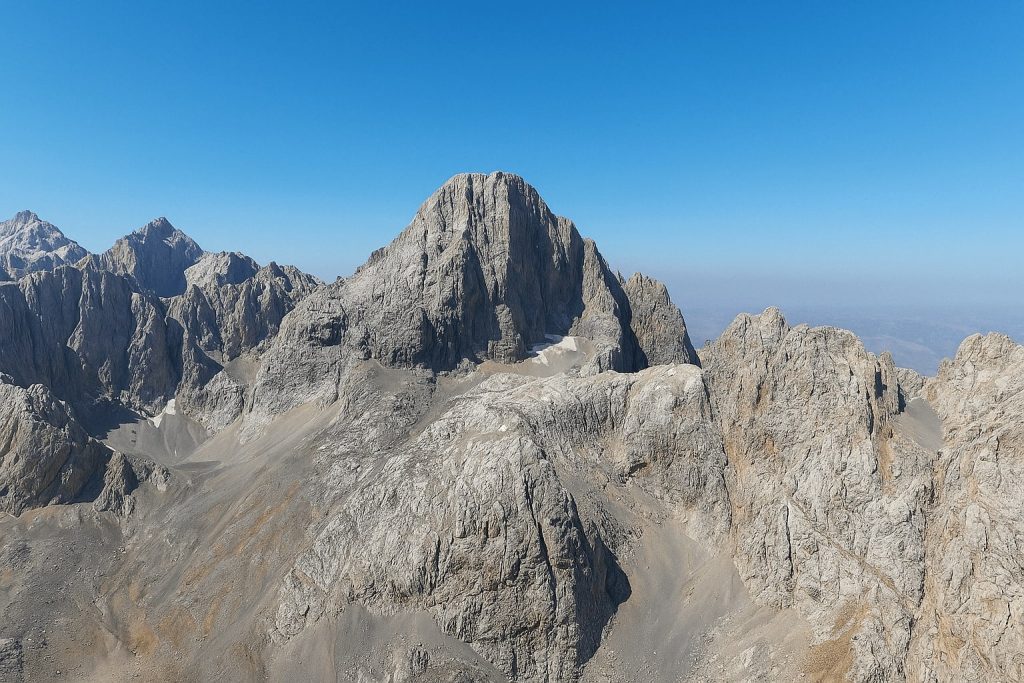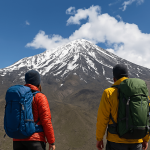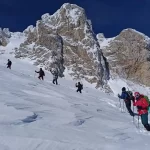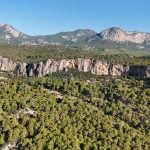Ecotherapy in the Mountains: How Nature Heals You, One Peak at a Time
“Why Do You Keep Going Back to the Mountains?”
I’ve been asked this more times than I can count. And if you’ve ever set up camp on the slopes of Mount Ararat, stood silently facing the jagged peaks of Aladaglar, or watched the sun rise over the volcanic ridges of Erciyes, you probably know the answer.
It’s not just about the climb.
It’s the silence.
It’s the stillness.
It’s the feeling that, in a world full of noise, the mountain is the only place that listens back.
For many of us in the guiding world, ecotherapy isn’t a new trend—it’s just what happens when you spend enough time in the wild. But science is finally catching up, and now we have a name for what we’ve always felt: nature heals.
🧭 What Is Ecotherapy?
Ecotherapy—also known as nature therapy, green therapy, or eco-healing—is a structured practice that encourages conscious interaction with natural environments to promote psychological and physiological well-being. The word comes from the Greek “eco” (home) and “therapeia” (healing), reminding us that reconnecting with nature is a return to our roots.
Whether you’re walking a forest trail, meditating on a mountain ridge, or simply breathing in alpine air, the natural world becomes an active therapeutic space.
🏔️ Why the Mountains Are Perfect for Ecotherapy
Yes, a park bench in a quiet urban corner helps—but true transformation? That happens at altitude.
Mountains offer:
-
Silence that calms the nervous system
-
Altitude that challenges the body and clears the mind
-
Wilderness that strips away distraction
Mountains like Mount Hasan, Dedegöl, and Süphan are more than climbing goals—they’re places to unplug, reflect, and reset. The ruggedness of Cilo, the expansiveness of Ararat, the still lakes in Aladağlar—each offers a different kind of healing.
🧠 The Science Behind the Feeling
Ecotherapy isn’t just spiritual—it’s physiological. Here’s what the science says:
✅ 1. Reduced Cortisol = Reduced Stress
Time in nature lowers cortisol levels, reduces blood pressure, and enhances mood. A study from the University of Michigan found that just 20 minutes in nature significantly reduces stress hormones.
✅ 2. Improved Immune Function
Trees emit phytoncides, which increase the activity of natural killer cells, enhancing immune defenses. Forest bathing in Japan (shinrin-yoku) is now a medically prescribed activity.
✅ 3. Better Sleep
Natural light synchronizes the body’s circadian rhythm. Alpine camping, away from artificial light, helps restore melatonin production and leads to deeper, uninterrupted sleep.
✅ 4. Mental Clarity & Attention
Nature restores “directed attention” capacity. According to Stanford researchers, a 50-minute walk in a green environment improves memory, attention span, and problem-solving.
🥾 How to Practice Ecotherapy on the Mountain
You don’t need incense or fancy gear. You need presence. Here’s how I guide people to experience it deeply:
1. Start in Stillness
Before hiking, take 5 minutes. Breathe. Let your feet feel the ground. Let your mind soften.
2. Activate the Senses
Touch rock, feel cold wind, smell wild thyme. Ground yourself in sensation.
3. Disconnect to Reconnect
Phone on airplane mode. Let go of “capture.” Just be.
4. Rest with Intention
Sit on a summit or under a tree. Don’t rush. Let your nervous system settle.
5. Reflect in Silence
After hiking, journal. What shifted? What left your body today?
📍 Mountains That Embody Ecotherapy in Türkiye
| Mountain | Why It Heals |
|---|---|
| Mount Ararat | Spiritual vastness and geological majesty—deep reset |
| Aladağlar (Taurus) | Crystal lakes, dramatic ridgelines, alpine silence |
| Mount Erciyes | Easily accessible with powerful views—great for new hikers |
| Mount Hasan | Volcanic terrain, peace at elevation |
| Dedegöl Dağı | Less known = more solitude. Rich flora & therapeutic air |
| Mount Cilo | Remote wilderness at its purest—healing in isolation |
| Süphan Dağı | Views over Lake Van, rare encounters with others |
| Kızlar Sivrisi | Mediterranean magic + solitude in Taurus peaks |
🪄 A Moment of Stillness on the Dedegöl Ridge
I remember a solo hiker I once guided on a late summer route near Dedegöl. She barely spoke the first day—eyes fixed on the rocky trail, breath short, shoulders tense.
By the third day, we reached a ridge where clouds dipped into the valley like soft waves. She didn’t say a word. Just dropped her pack, sat down, and started crying quietly. Not from exhaustion—she later told me—from release.
“I didn’t know I was carrying this much until the mountain helped me put it down.”
That’s ecotherapy. No therapist required—just air, altitude, and time.
📚 What Science Says About Long-Term Nature Exposure
Several long-term studies show sustained nature exposure leads to:
-
30% reduction in anxiety and depression rates (UK Nature Connectedness Survey)
-
Improved executive functioning in school-aged children who attend forest schools
-
Reduced inflammation markers and lower resting heart rate in wilderness campers
-
Enhanced emotional regulation and decreased rumination in adults spending at least 2 hours/week in green environments
Bottom line? Nature is not a weekend luxury—it’s a neurological necessity.
🔄 Can You Combine Ecotherapy with Adventure Sports?
Absolutely. You don’t need to sit still in a meadow to receive ecotherapy’s benefits.
-
Trail running: rhythmic and meditative
-
Climbing: mindfulness in motion
-
Snowshoeing: winter silence, cardio therapy
-
Backpacking: slow immersion + physical endurance
-
Ski touring: flow state + scenic immersion
The key is not what you do—it’s how you do it. Consciousness and presence transform any outdoor activity into a healing one.
⚠️ Is Mountain Ecotherapy for Everyone?
Mostly, yes. But consider:
-
If you have chronic health conditions, consult your doctor before high-altitude treks.
-
People with severe trauma may benefit more from guided ecotherapy programs initially.
-
Choose terrain that fits your ability level—healing shouldn’t equal exhaustion.
For most people, even a 2-hour moderate hike on a quiet slope (like the southern paths of Mount Hasan or the pine-covered base of Erciyes) offers major mental health benefits.
🎒 7-Day Ecotherapy Mountain Challenge
Here’s a week-long prompt series you can follow in any mountain setting:
Day 1 – Walk in complete silence for 30 minutes
Day 2 – Pick a rock or tree to sit by and reflect
Day 3 – Touch the earth, literally. Sit or lie on grass/ground
Day 4 – Journal three things your body is grateful for
Day 5 – Watch the sunrise or sunset intentionally
Day 6 – Draw something from your surroundings
Day 7 – Write a letter to yourself in the wild, then keep it
You don’t need a full expedition—just intention, time, and an open heart.
🏁 Final Words From the Trail
You don’t need to be broken to seek healing. You just need to be human.
The mountains won’t ask who you are, what you do, or why you came. They’ll just offer space. Stillness. Silence.
So the next time life feels heavy, don’t scroll. Don’t binge. Don’t escape.
Pack a bag. Find a peak. Let nature do the rest.
📌 Disclaimer:
This article is for educational purposes and is not a substitute for professional mental health care. Please consult a healthcare provider for personalized advice.





